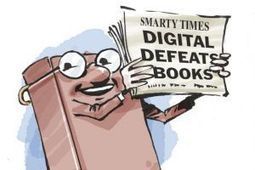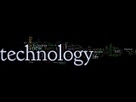Via Costas Vasiliou
Get Started for FREE
Sign up with Facebook Sign up with X
I don't have a Facebook or a X account
 Your new post is loading... Your new post is loading...
 Your new post is loading... Your new post is loading...
Monica Jones's comment,
September 25, 2012 1:31 AM
According to “The End of Solitude" "the contemporary self" wants to be recognized and wants to be connected. It also wants to be visible. The "great contemporary terror" is anonymity.
's comment September 25, 2012 9:00 AM
According to “The End of Solitude,” what is it that “the contemporary self” wants to be know by others, they want to be connected with other people constantly. "The contemporary self" wants to be visible. The "great contemporary terror" is anonymity or the state or quality of being anonymous. This is also goes hand and hand with people never want to be alone or are afraid to be alone.

Brittanie Rushing's comment,
September 25, 2012 9:36 AM
The great contemporary terror is about being anonymous; being unknown by others. But the contemporary self desires to be constantly connected. The want to be seen and known. Oddly enough the two seem opposite yet related.
Monica Jones's comment,
September 11, 2012 2:12 AM
One thing that catch-22 touches on is that facebook "has a massive storehouse of user data, but every time it tries to capitalize on that information, it's members freaks out". The users don't give them a chance to fix these glitches in time before they start reporting these problems. The users also may feel as if their privacy is being violated based on the information they post because facebook uses this to post their advertisements.

Brittanie Rushing's comment,
September 11, 2012 8:08 AM
I think that in one word all the answers are contained. Privacy. We no longer have it yet we no longer seem to care or ask for it. I knew nothing about all the interactions between Google and Facebook before this piece. The owners of Facebook are quite frankly a little disturbing. We all enjoy a site for social networking and are on it daily. The question it are we thinking about what this means. As the Facebook experience improves our privacy seems to dwindle more and more.

Sung Hyun Kim's comment,
September 11, 2012 10:50 AM
Many of us don't understand how much risk they are taking when they are entering their own personal information on facebook. The action itself became so normal for us that we do not even think its a threat to us anymore. I wouldn't say that catch-22 is specifically the main reason that we are leaking our own personal information on facebook. However, we have just gotten too numb about this action of ours.

Joe Silverstar's comment,
April 14, 2013 10:47 AM
Brilliant, Indeed!! I hope Many, many people see this gem!

Paula Correia's curator insight,
April 22, 2013 11:30 AM
Tudo é um remix... As nossas ideias são consideradas, do ponto de vista do Direito, como propriedade, como únicas e com limites bem definidos. Será isso um MEME? . ( O meme , termo criado por Richard Dawkins é o análogo do gene na genética. É uma unidade de evolução cultural que pode de alguma forma autopropagar-se. Podem ser ideias, línguas, sons, desenhos, capacidades, valores estéticos e morais, ou qualquer outra coisa que possa ser aprendida e transmitida.)

Ken Morrison's comment,
August 7, 2012 9:14 PM
Thank you for following my topic. I hope it is helpful for you. You have some good sites here. Keep up the great work. Enjoy. Ken

Rachel May's curator insight,
March 22, 2013 6:43 AM
A time mapping of current and emerging technologies for the next 30 years including health care advancements such as self healing materials, organ printing and synthetic blood in the next couple of years. It is interesting to think about which ones we will be able to tick off as accurate and which ones will end up seeming as far fetched as all of us on hoverboards in 2012 (thinking 'Back to the Future'). |
Monica Jones's comment,
September 4, 2012 1:19 AM
Turkle describes digital culture as being a need and necessity in everyday life. She states that "by the end of the 1980s, my students begin to write about growing up with electronic games, lasers, video games, and "home computers," objects that are investigated through the manipulation of program and code. Yet even with the passage from mechanical to electronic, and from analog to digital, students express a desire to get close to the inner workings of their machines. The early personal computers made it relatively easy to do so". I think she means by this that her students liked working with digital objects that didn't come programed already like the ones do now in the new era. Maybe they liked working on these machines themselves and building them from scratch up also. The metaphor that she used to describe all this was "an early personal computer was like an old car in your garage. You could still "open up the hood and look inside.""
's comment September 4, 2012 10:00 AM
Attaching Word files to e-mail is comparable to a standard railroad gauge as described in "Moore's Law and Technological Determinism" because they both show flaws such as Mircosoft Word changing font all of a sudden and the standard railroad gauge is slightly narrower than the optimum, but they are still continually used because they have become standard to use my the majority of people. In "A Passion for Objects' Turkle states at its heart digital culture is precision and infinite possibilities.

's comment September 4, 2012 11:33 AM
Turkle decribes our passion for objects as a collective overwhelming need to be knowledgeable about technology as it has evolved over the past decades. I can personally relate to her article because I work in the telecommunications sales industry and I see everyday the passion and NEED for new smartphones in customers' questions like, "when is this or that device coming out?" Additionally, the need and passions are demonstrated when thousands of people line up outside of AT&T, Verizon and Apple stores to desperately get their hands on the newest iPhone.

Alex Patton's comment,
September 18, 2012 10:21 AM
There are many risks from looking for potential job employees at online sources and social networking cites. Viewing a person's online profile is very risky, it can be accurate or very misleading. Employers might want to not rely on Facebook and just do independent background checks instead, this would be more efficient and accurate.

Chris Bechtel's comment,
September 20, 2012 5:57 PM
Researching potential job candidates on social networking sites is certainly a risky behavior by employers. The SNOPA (Social Networking Online Protection Act ) has already been created and passed by a few States and quickly, others are joining the movement. The problem with all the info available on sites like Facebook, is that none of it is verifiable data. With any photo, I can create a phony Identity on Facebook and even masquerade around as an actual real person. With the unemployment rate so high, American's can't afford this added investigation into their personal lives intended only to disqualify by focusing more on ambiguously defined infractions and less on one's morals and accomplishments.

Paola Alexandra Castello's comment,
September 30, 2012 11:04 PM
According to the article one of the risks employers faced when researching a potential employee is crossing legal boundaries. As stated on the article it is illegal to conduct a background check without the individuals' consent. Another risk is discriminating a potential employee based in their religion, race, and marital status which is illegal. Knowing whether the information getting from the internet is true or not is another risk they may take. As stated on the article if their personal life does not interfere with their professional life it should not matter to the employer. "The internet is not necessarily s reliable source" Strickland says. By employers taking this risks to make sure they are hiring the best possible candidate for their job they may also "reject" a good candidate based on information gathered from the internet that may not be true or that may have been created by a third party without that person's consent.

Paola Alexandra Castello's comment,
August 30, 2012 6:54 AM
When Neil Postman said the following statement" We need to proceed with our eyes wide open so that we may use technology rather than be used by it." it makes me think of how the use of technology and the advances through out the years has changed the lives of our generations. Technology is taking over our life and we are unknowingly letting it happened. Not only is the internet, and technology everywhere we go, but we look for it because it has made our life easier. Whether it is with communication between students and teachers, but even we our families which not necessarily means is a good to thing, at least not for me. Technology is taking over our life and we need to use it with caution to make sure our life does not revolve around it. Technology should be used as a tool not as an everyday necessity.

Sung Hyun Kim's comment,
August 30, 2012 12:53 PM
I feel as though when Postman stated "We need to proceed with our eyes wide open so that we may use technology rather than be used by it." he was trying to inform and caution us to broaden our view towards technology itself. How it could lead us to a path of success or the other way around. Of course the technology was created so that information and various other services were there to help our lives be more convenient. However, exploiting these privileges and using these tools for wrong intentions could lead us to some bad situations.
For an example, we can use Facebook to connect to numerous people all around the world. However it could also put your privacy at risk while your basic information, your pictures, and with the GPS system being really efficient, people can even find out where you live. Twitter, another mass-info service can be a problem as well. It could bring you various information depending on what kind of people you "follow" but not everything in the internet is true. It could inform you with the wrong details as well. It could also be very time consuming depending on the users. We need to make sure that we are aware of these problems with technologies and use them efficiently and not so that we would waste our time looking at your friends "tweeted" for lunch. 
Chris Bechtel's comment,
August 30, 2012 6:51 PM
Postman's concept that we must use technology and not be used by it is very applicable to the present scenario in our world. I remember a less technological time (pre 1990) in which social interaction was less connective and far reaching, but more meaningful overall. At present, we as a collective, find ourselves fully engaged in the latest and greatest tech toys and tools but are we utilizing technology to our advantage or simply being distracted and addicted? It doesn't seem that long ago since we existed without the constant bombardment of computers/smartphones. Now, our day's success depends on our ability to constantly check updates that are predominantly meaningless and unproductive. Will we yield to the machines as we become increasingly mesmerized by their ability to captivate us? If the last two decades are anything to go by, things aren't looking good.

Barbara Kurts's comment,
January 9, 2013 9:04 PM
my topics here http://www.scoop.it/t/health-leads-plus

ben bernard's comment,
January 9, 2013 11:37 PM
thanks ! http://www.scoop.it/t/direct-marketing-services my newly made scoop.it :)
|









![Only 2% of People Can Multitask Successfully [INFOGRAPHIC] | CAS 383: Culture and Technology | Scoop.it](https://img.scoop.it/9IWKNpEWkOm7FZ8fpVXn1zl72eJkfbmt4t8yenImKBVvK0kTmF0xjctABnaLJIm9)















